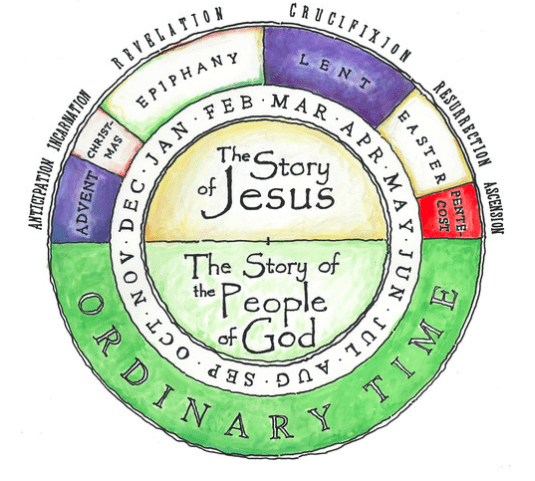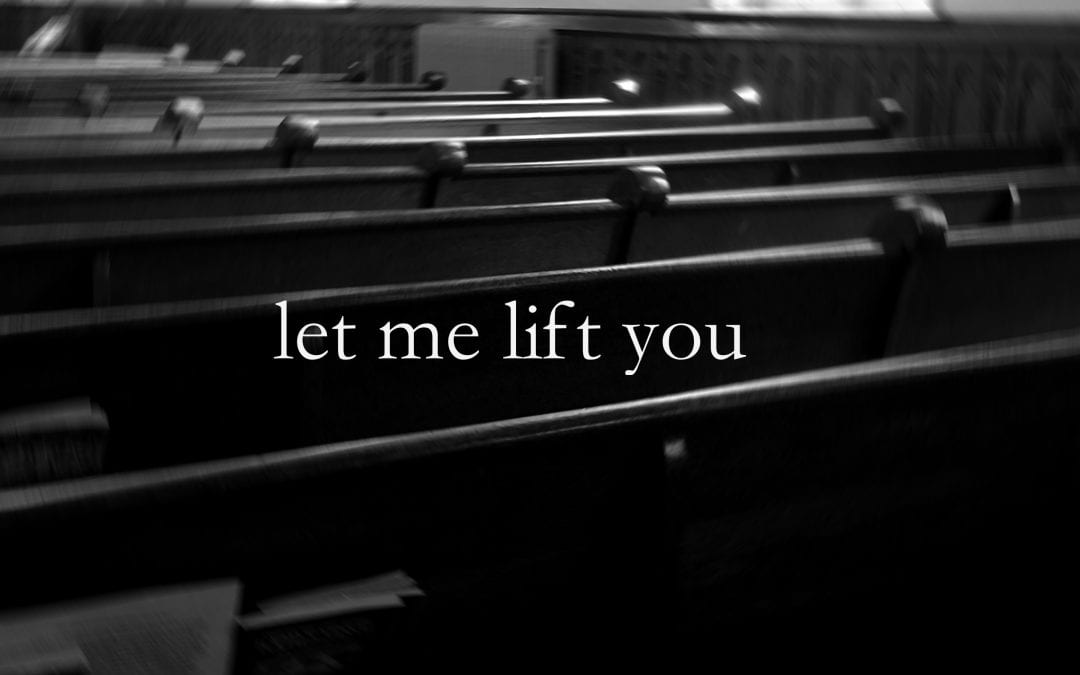“Humble yourselves, therefore, under God’s mighty hand, that he may lift you up in due time.” 1 Peter 5:6 NIV
Those of you that know me personally know that I have a two year old son. You know the kid typically running around with half a loaf of communion bread in his hand after one of our Sunday gatherings? Yeah, that’s him. Like most two year olds, he’s insistent on doing things his way – blazing his own trail, pioneering his own path – even though my husband and I know better and wish he’d follow our prompting a little more often. One evening last fall, I was sitting on the couch in our living room and my son, Sullivan, was trying to climb up onto me. He was getting frustrated because he couldn’t do it. I said, “Just let me lift you!” I knew I could give him what he needed in that moment if he would just be still and look up at my outstretched arms.
The scenario immediately reminded me of the ways we perceive ourselves in relation to God. When we feel that God is seated higher than we are, in some inaccessible and lofty place, we can begin to feel frantic when we need him. We think we need to strive and climb and struggle our way to a place where he can hold and comfort us. But just like Sullivan frustratedly failing to climb into my lap, our strivings toward God ultimately prove impossible because only he – not we – can provide the means by which we come into a loving embrace. He is the author and capable sustainer, the first actor in every scene. God is right in front of us, reaching out his arms and saying, “Just let me lift you.” Will we let him? It’s not that he’s distant. It’s that our own self-centeredness and striving so often blind us from seeing the outstretched arms of God right in front of us, ready to lift us.
As we enter a forty-day season in the Christian year called Lent, I am reminded again of that evening with my son. Christians throughout the ages have honored the Lenten season by using it as a time to reflect on the flawless life of Jesus in juxtaposition with our own flawed humanity. We are the toddlers flailing around angrily, crying through hot tears about how we want to do things our own way. We are the children so blind to the outstretched arms right in front of us. We are reminded during these forty days of our own desolation. We want control. We want power. We want our way.
During Lent, we see before us the devastating flood in Genesis that lasted forty days. We see the forty years the Israelites wandered. We see the forty days Moses fasted before he received wisdom from God. We see the forty days Jesus took to experience solitude in the desert. And when Jesus journeyed into the wilderness for those symbolic forty days, it wasn’t merely a clever homage to his faith tradition. Instead, he was re-contextualizing the tradition itself to revolve around him. He put the whole of Israel’s history and hope on his own shoulders. Talk about bold!
Jesus lived, died, and rose again to show us a better way to relate to God than our strivings and suffering give us the means to do so. Our identity as image-bearers is restored in the story of Jesus. Lent is a carved-out, set-apart time to remember the life of Christ and all the ways we fall short without his Spirit enlivening us. Lent nudges us to take a long, scenic drive through our depravity and ponder things in a deeper way than we might otherwise. See, Jesus himself showed us how to look past our striving and suffering and see the arms of God outstretched before us. Jesus showed us how to view shameful regret and past mistakes through the lens of his own love for us. Jesus showed us how to pause and reflect, but also how to regroup and re-contextualize our lives around his good news. If we humble ourselves, God will lift us up. Jesus is the perfect example of this revolutionary meekness: a life lived in complete surrender and reliance on the love of God.
Throughout history, followers of Jesus have celebrated his radical life by adhering to something we call the Church Calendar. Instead of organizing our communities and worship gatherings around our dominant culture’s schedule (Valentine’s Day! Mother’s Day! Father’s Day! Independence Day!), we seek to maintain a healthy rhythm by adhering to a calendar that centers our eyes onto the life of the one who re-contextualized history and showed us how to be truly human, the one whose name we boldly claim: Jesus.

This image beautifully depicts the Christian year and its seasons. When we follow this calendar, we wax and wane, ebb and flow, with the story of God in real time and space. It’s a powerful thing! You may not know this, but here at Restoration we closely and prayerfully follow the seasons of the Church Calendar. We incorporate appropriate scripture readings, prayers, songs, and sermon themes into our worship gatherings based on this calendar. We believe that the Church Calendar is a gift. It’s one of the ways that God reaches out his arms and says, “Let me lift you.” It’s a celebration of saints and witnesses – past, present, and future – living out the Story of God as the people of God together as a countercultural Kingdom community.
Our hope is that as we enter this season of Lent together, we would be reminded of our own weakness and be drawn to the life of Jesus. That we wouldn’t simply wallow in sorrow, but that we would reflect and grow and be challenged to let God lift us. His arms are outstretched. He has acted and the reaction is up to us. Will we humble ourselves and reach out to clutch the treasures he has so lovingly placed before us?
God promises to lift us through the gifts of the Holy Spirit and the fellowship of one another. He lifts us through music: singing together with one unified voice, the Spirit as our guide. He lifts us in our learning: sermons and scriptures that shape our understanding of Heaven and Earth. He lifts us in our self-sacrifice: financial giving, volunteering, and relenting privilege humbly. He lifts us in our rituals: the gift of the Church Calendar, the shared communion table, water baptism, and weekly gatherings. He lifts us through community: laughter and tears and friendships with deep, healthy roots. He lifts us in our commitment to restorative justice: rallying together for the sake of his Kingdom come. One of the most beautiful things about being the body of Christ is that we can outstretch our arms toward one another and toward the world and say with all humility and hope, with the power of the Spirit, “Let me lift you.”

